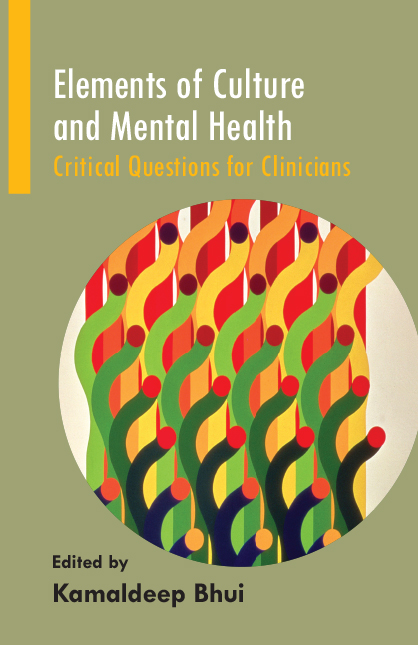Book contents
- Frontmatter
- Contents
- List of contributors
- Foreword: Desire and commitment: essential ingredients in learning about culture and mental illness
- 1 Is trauma-focused therapy helpful for survivors of war and conflict?
- 2 Will ethnopsychopharmacology lead to changes in clinical practice?
- 3 Does cognitive–behavioural therapy work for people with very different cultural orientations and backgrounds?
- 4 Can you do meaningful cognitive–behavioural therapy through an interpreter?
- 5 Are particular psychotherapeutic orientations indicated with specific ethnic minority groups?
- 6 Can psychotherapeutic interventions overcome epistemic difference?
- 7 On the role of culture and difference in evaluation, assessment and diagnosis
- 8 Necessary and sufficient competencies for intercultural work
- 9 On the validity and usefulness of existing Eurocentric diagnostic categories
- 10 Benefits and limitations of the cultural formulation in intercultural work
- 11 Barriers to the intercultural therapeutic relationship and how to overcome them
- 12 How does intercultural interpretation work in the mental health setting?
- 13 Do the power relations inherent in medical systems help or hinder in cross-cultural psychiatry?
- 14 Recovery and well-being: a paradigm for care
- 15 Social perspectives on diagnosis
- 16 Public mental health and inequalities
- 17 Can you do psychotherapy through an interpreter?
- 18 Can race and racism be acknowledged in the transference without it becoming a source of therapeutic impasse?
- 19 Cultural competence: models, measures and movements
- 20 Religion, spirituality and mental health
- Index
10 - Benefits and limitations of the cultural formulation in intercultural work
- Frontmatter
- Contents
- List of contributors
- Foreword: Desire and commitment: essential ingredients in learning about culture and mental illness
- 1 Is trauma-focused therapy helpful for survivors of war and conflict?
- 2 Will ethnopsychopharmacology lead to changes in clinical practice?
- 3 Does cognitive–behavioural therapy work for people with very different cultural orientations and backgrounds?
- 4 Can you do meaningful cognitive–behavioural therapy through an interpreter?
- 5 Are particular psychotherapeutic orientations indicated with specific ethnic minority groups?
- 6 Can psychotherapeutic interventions overcome epistemic difference?
- 7 On the role of culture and difference in evaluation, assessment and diagnosis
- 8 Necessary and sufficient competencies for intercultural work
- 9 On the validity and usefulness of existing Eurocentric diagnostic categories
- 10 Benefits and limitations of the cultural formulation in intercultural work
- 11 Barriers to the intercultural therapeutic relationship and how to overcome them
- 12 How does intercultural interpretation work in the mental health setting?
- 13 Do the power relations inherent in medical systems help or hinder in cross-cultural psychiatry?
- 14 Recovery and well-being: a paradigm for care
- 15 Social perspectives on diagnosis
- 16 Public mental health and inequalities
- 17 Can you do psychotherapy through an interpreter?
- 18 Can race and racism be acknowledged in the transference without it becoming a source of therapeutic impasse?
- 19 Cultural competence: models, measures and movements
- 20 Religion, spirituality and mental health
- Index
Summary
In 1991, the US National Institute of Mental Health supported the creation of the Group on Culture and Diagnosis. The main goal of this group was to advise the DSM-IV Task Force on how to make culture more central to DSM-IV (Mezzich, 1995). The Group even suggested the inclusion of a sixth axis devoted to cultural issues. This ambitious proposal had to be abandoned because of the strong criticisms received but, among the few suggestions finally accepted, the ‘cultural formulation’ was probably the most significant (Mezzich et al, 1999).
The cultural formulation is an operationalisation for clinicians of the process of cultural analysis as it relates to the clinical encounter that can be performed as part of the evaluation of every patient. From the outset, one of its specific aims was to provide a mechanism that would facilitate the application of a cultural perspective to the process of clinical interviewing and diagnostic formulation in psychiatry (Lewis-Fernàndez, 1996). The cultural formulation was meant to supplement the multi-axial diagnostic assessment and to address difficulties that may be encountered in applying DSM-IV criteria in a multicultural environment. The DSM cultural formulation consists of five components:
• assessing cultural identity
• cultural explanations of the illness
• cultural factors related to the psychosocial environment and levels of Functioning
• cultural elements of the clinician–patient relationship
• the overall influence of culture on diagnosis and care.
As explained by the Committee on Cultural Psychiatry of the Group for the Advancement of Psychiatry, the specific definitions, causal role and interrelations of constructs such as culture, immigration, ethnic identity and so forth are difficult to delineate, to the extent that these constructs are confounded or lost (Committee on Cultural Psychiatry, 2002). In addition, as some authors have pointed out (Alarcón, 1995; Bäärnhielm & Rosso, 2009), a key challenge in cultural psychiatry is the management of the nomothetic v. the idiographic. The cultural formulation seeks to aid clinicians in combining the more idiographic perspective of psychiatry and the DSM with the more nomothetic (Bäärnhielm & Rosso, 2009).
- Type
- Chapter
- Information
- Elements of Culture and Mental HealthCritical Questions for Clinicians, pp. 47 - 50Publisher: Royal College of PsychiatristsFirst published in: 2017



